This plane looks like an air-to-air missile. Now go bleach your eyes.
”We have a real flying pencil right here…”
”Wait… the snoot doesn’t droop?!?!??!”
Livery Variant
Features and Controls below the lore segment.
Thanks for 10K!
I've reached another major milestone!
Thank you so much to everyone who upvoted and liked my builds, your support really means so much to me!
Some notable people:
- LM0418 for his unceasing support; he's upvoted and commented on every single post I have.
- Aarav, also for his support. I helped him a lot during BWC2, so we're kind of friends now.
- CL125, JP11, ApplePies84, Gabriel747 and DeadlyDiaga for upvoting my posts.
And now, to the stars, and to the next milestone!
-Republic of Cursed Planes

Oh yeah, I finally tried editing my photos; I used my phone to do these. How does it look?
Lore (not generated by ChatGPT)
It's 1959. The RCP, at this time, was still a British Overseas Territory, with the name of the Wright Islands. And RCP Engineering's predecessor, Wright Engineering, was beginning to gain influence in the aerospace field, having successfully designed a jet airliner, the world's second, 5 years ago.
At this time, supersonic planes were still relatively new, and there was increasing hype with supersonic aircraft carrying paying passengers instead of bombs. Major companies like Bristol and Sud Aviation proposed concepts for supersonic transports carrying hundreds of passengers.
Not wanting to be left behind, Wright Engineering opened a research study into an SST capable of carrying about 100 passengers at Mach 2. Its designers looked at air-to-air missiles, which could well outpace supersonic aircraft. Seeing the potential in the design, they modelled the new SST, newly named the W-2000, after it.
Unlike the other major companies, Wright Engineering managed to bring the W-2000 to the prototyping stage. On August 11, 1964, the first W-2000 prototype, registed WT-XAA, took to the skies. This made it the first ever SST to fly, with the Tu-144 only making its first flight 5 years later.

The W-2000 generated massive media attention, and major airlines like BOAC, Qantas and Pan Am signed huge orders for the aircraft. The W-2000 was on track to entering commercial service, and the world believed supersonic was the future of air travel. But then... that dream ended.
2 months after the W-2000's first flight, Wright Engineering fell on hard times, and was close to bankruptcy. Furthermore, the development of the W-2000 had cost millions of dollars, and continuing it was practically impossible for the company. Therefore, in January 1965, the W-2000 was officially cancelled. This piece of news brought much dismay, but not much could be done.
Wright Engineering's financial troubles only ended when the new Republic of Cursed Planes nationalised the company in 1969. Plans to restart the development of the W-2000 were formed, but they ultimately never came to fruition.
The only W-2000 ever built, WT-XAA, was restored in 1999 and is currently on display at the Museum of Cursed Planes in Wright City.
Features
Stable flight model. Unlike my Boom Overture, the elevators don't explode at Mach 1 anymore, so you can use them to fly. However, I suggest using trim at supersonic if you don't want to keep pushing down on the elevators.
Full interior with VR-friendly cockpit (more on that later).
Full cabin with 116 seats. You can be a passenger on this plane, and choose between a few comfortable seats with guaranteed window views!
Folding wingtips, similar to the ones on the XB-70. Like the XB-70, the W-2000 can (in theory) ride its own sonic boom, giving it greater speed and increased fuel efficiency.
Controls
Because of the plane's weird design, the engine start controls and most of the functions are at the flight engineer's seat instead of the pilot's seat.
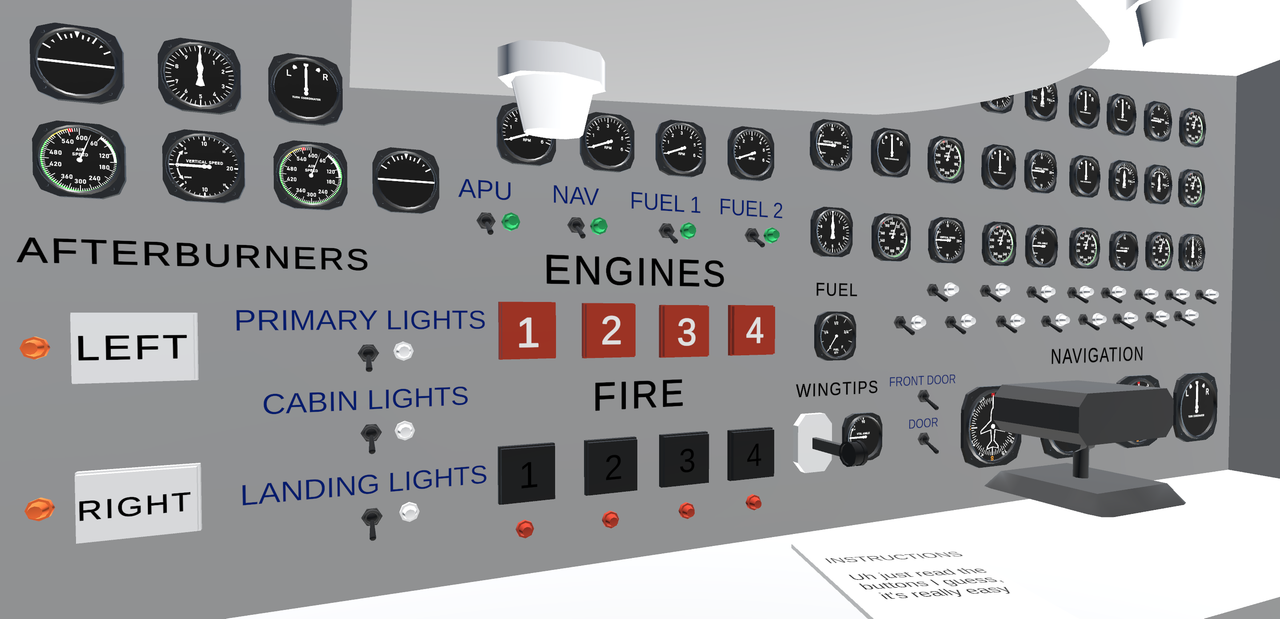
Flight Engineer Controls
- Engine Start
- Afterburners
- Lights
- Doors
- Folding Wings

Pilot Controls
- Normal flying controls, including yaw
- Throttle
- Trim
- Brake
- Reverse
I highly advise you find all the buttons first before you start flying.
Instructions for VR users
Just find the buttons.
Instructions for non-VR users
AG1: All Lights
AG2: Eng 1&2 startup
AG3: Afterburners (all engines)
AG4: Eng 3&4 startup
AG5: Front Cabin Door
AG6: Reverse
AG7: Other Doors
VTOL: Fold Wingtips
Trim: Trim
Takeoff
Throttle: 30% (for realistic acceleration)
Rotation Speed: 300km/h
Landing
Throttle: 25%
Landing Speed: 350km/h
Stall Speed: 200km/h
Now, on to Mach 2!
Full List of My Builds (click on this)
Specifications
Spotlights
- This craft is curated
- XAircraftManufacturer 2.7 years ago
- Aarav 2.7 years ago
- 929 2.7 years ago
- xNotDumb 2.7 years ago
- Brololxd 2.7 years ago
- FatPilotOne 2.7 years ago
- nekoanii 2.7 years ago
General Characteristics
- Successors 2 airplane(s) +28 bonus
- Created On Mac
- Wingspan 118.1ft (36.0m)
- Length 246.4ft (75.1m)
- Height 38.8ft (11.8m)
- Empty Weight 32,880lbs (14,914kg)
- Loaded Weight 106,353lbs (48,241kg)
Performance
- Power/Weight Ratio 12.879
- Wing Loading 38.9lbs/ft2 (190.0kg/m2)
- Wing Area 2,732.7ft2 (253.9m2)
- Drag Points 32686
Parts
- Number of Parts 1074
- Control Surfaces 5
- Performance Cost 4,817

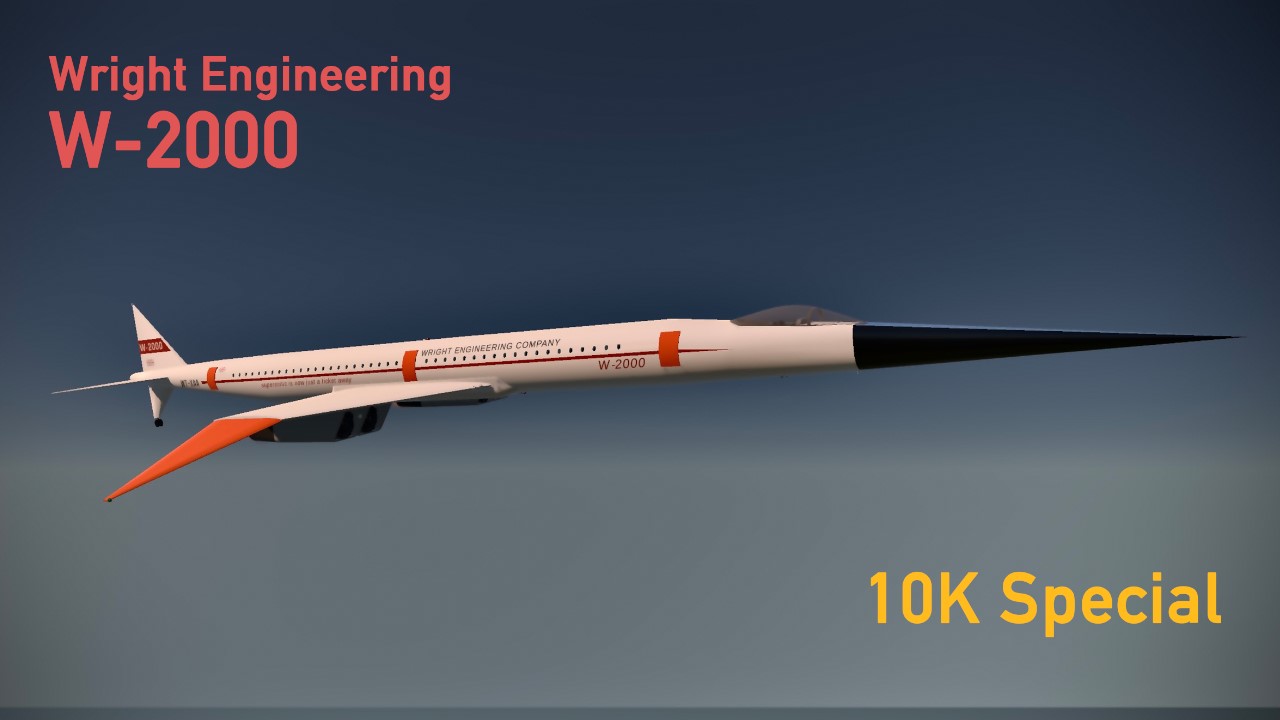
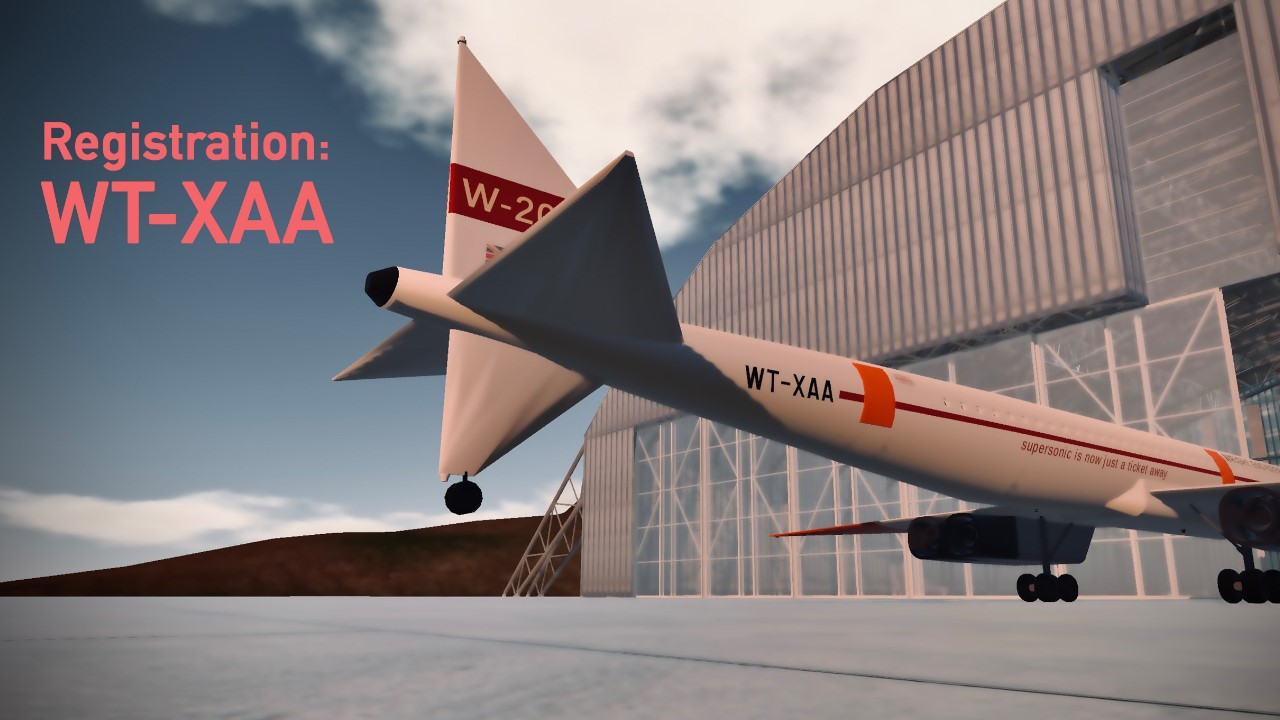
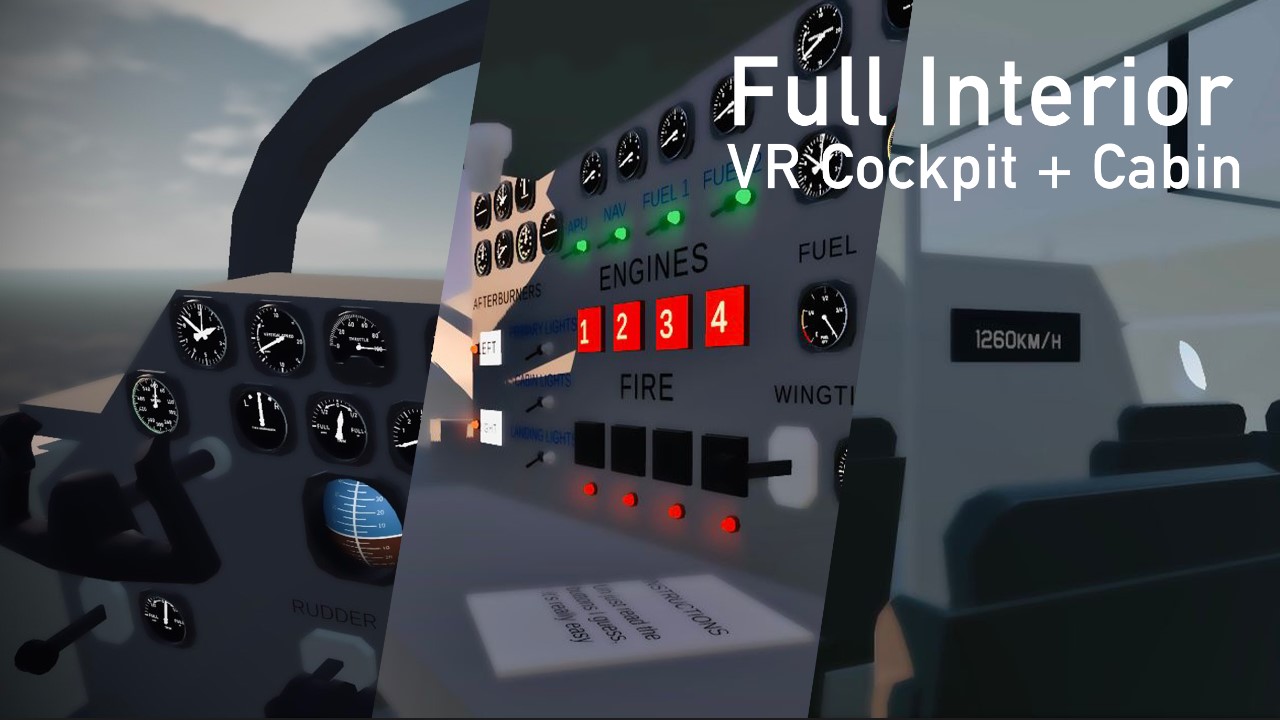
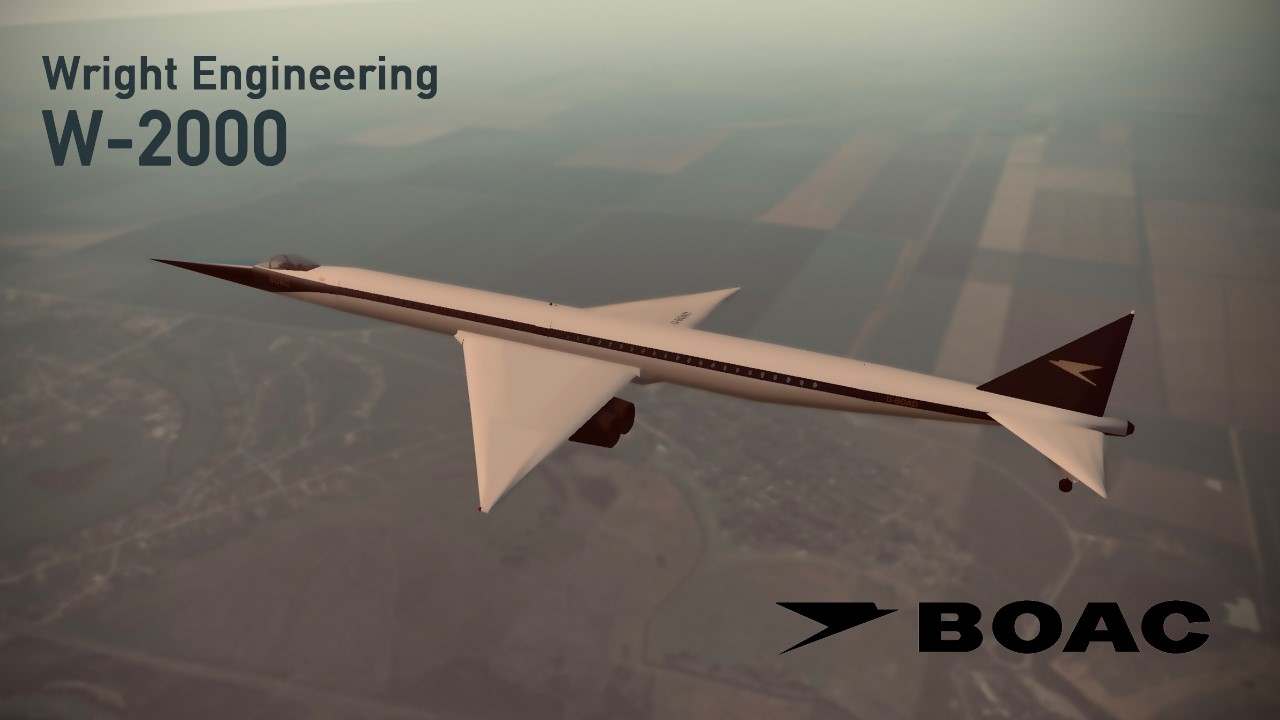
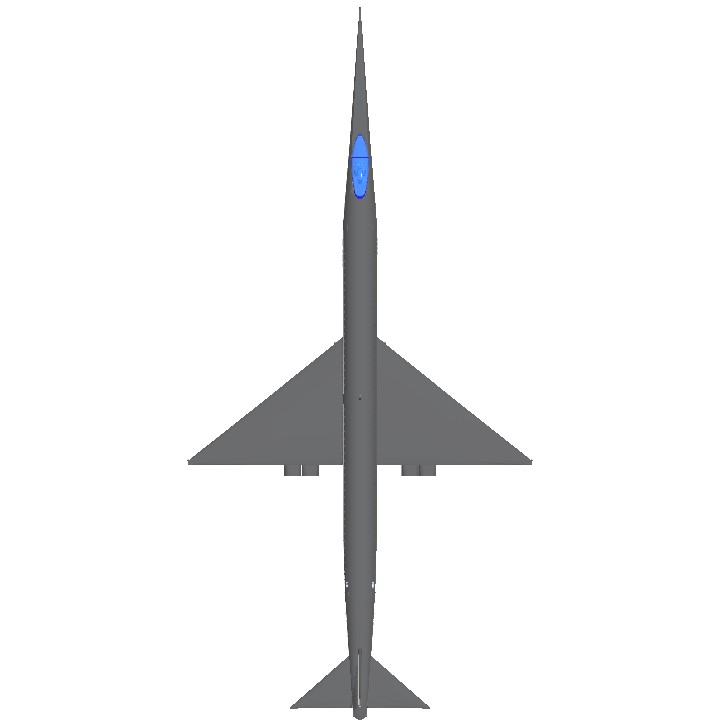
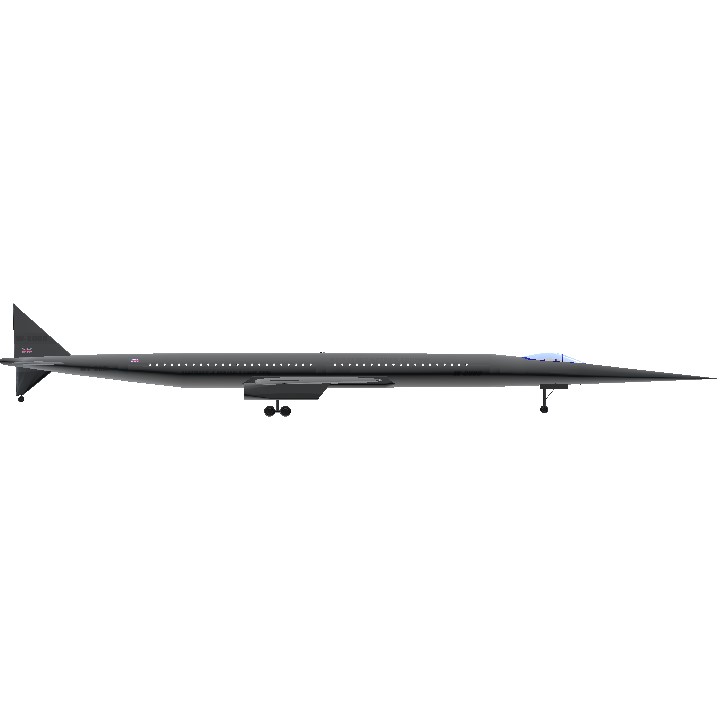
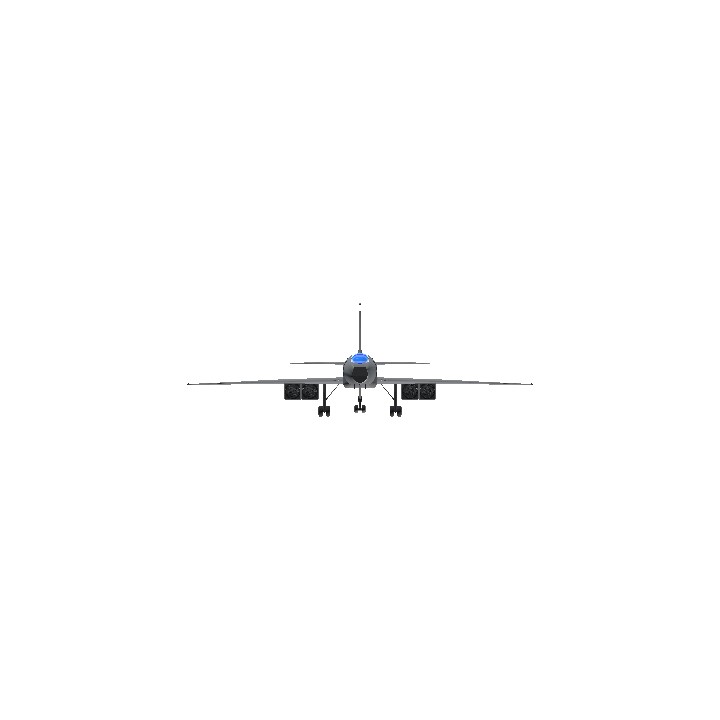
Hope this gets curated sooner or later...
Update: it most likely won’t, probably because it has too many parts.
I’m going to make a BOAC livery for this plane, will probably finish it within the next 2 weeks or so
Forgot to mention, the snoot doesn’t droop…
@RepublicOfCursedPlanes What about the British European Airways?
Ayo
@crazyplaness if the right side door opens all the way, it breaks off for unknown reasons, so I only allowed the door to open halfway
For some reason one of my doors tilts to the side and doesn’t open all the way. Has anyone else been experiencing this issue?
If the XB70 and Concorde had a child...
He looks a little silly :)
Look'in delightful
the plane looks so easy, but really beautiful, not the product of many funky numbers.
i really like it.
Any chance of someone making a lavatory?
I'm not. A very talented builder so I can't
Yes...
Amazing!
@airlinerbuilder I mean it does, that’s why it has a navigator’s station. Also, it knows this because it knows where it isn't, by subtracting where it is, from where it isn't, or where it isn't, from where it is, whichever is greater, it obtains a difference, or deviation. The guidance sub-system uses deviations to generate corrective commands to drive the missile from a position where it is, to a position where it isn't, and arriving at a position where it wasn't, it now is. Consequently, the position where it is, is now the position that it wasn't, and it follows that the position where it was, is now the position that it isn't. In the event of the position that it is in is not the position that it wasn't, the system has required a variation. The variation being the difference between where the missile is, and where it wasn't. If variation is considered to be a significant factor, it too, may be corrected by the GEA. However, the missile must also know where it was. The missile guidance computance scenario works as follows: Because a variation has modified some of the information the missile has obtained, it is not sure just where it is, however it is sure where it isn't, within reason, and it knows where it was. It now subracts where it should be, from where it wasn't, or vice versa. By differentiating this from the algebraic sum og where it shouldn't be, and where it was. It is able to obtain a deviation, and a variation, which is called "air".
does this mean that it knows where it is?
@Mastereldo thanks! My exams start next week so I probably won’t be building for a while
@RepublicOfCursedPlanes suggest you listen to bandana , it's a masterpiece
@NoblePlanesLTD no…?
That looks amazing!
Very nice!
Wow F-20 and Concorde has a child
Great job, I should probably try and make some fictional planes too but it's too hard 😭😂
@RepublicOfCursedPlanes do you listen to afrobeats👌?
Beautiful work!, I love these details on the fuselage